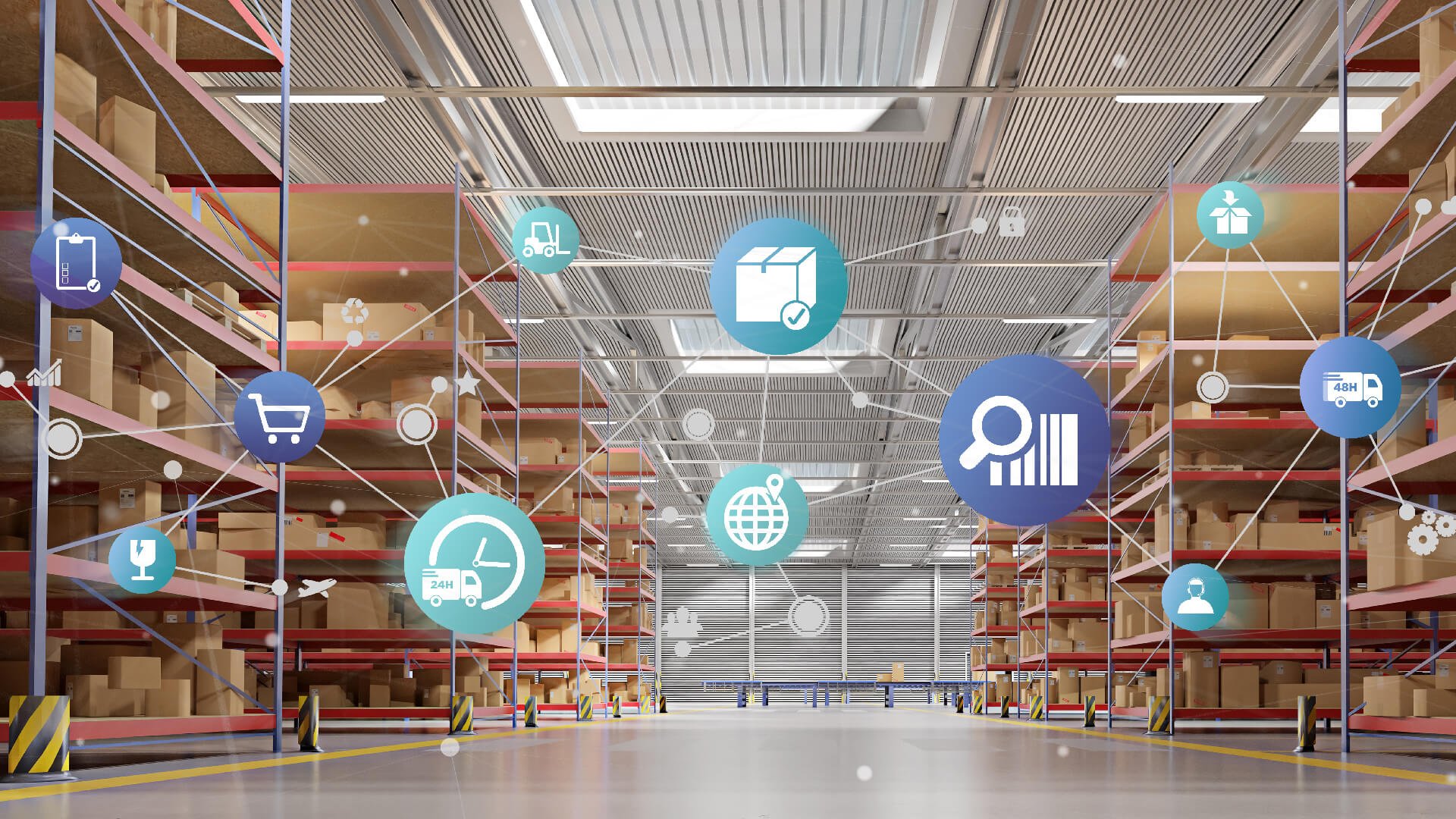How Alnatura copes with the consequences of crises in the food industry
High energy and fuel prices, raw material shortages and uncertain supply chains: The situation in food logistics remains tense. The German organic food retailer Alnatura is also feeling the effects. Fabian Meyer, Head of Logistics & Supply Chain Management at Alnatura, explains how the company, which has been using REMIRA LOGOMATE inventory management software for many years, is dealing with the challenges.
Fueled by the coronavirus pandemic and the ongoing war in Ukraine, the food industry remains under pressure. Consumer behavior remains difficult to predict in some cases. In addition, many services and raw materials have become scarcer and therefore more expensive. Delivery deadlines are being missed more frequently than before the crises began. Rising costs are also leading to an enormous tension between quality and availability of goods. These challenges make it difficult for companies like Alnatura to plan their daily production and delivery logistics. The German organic food retailer is therefore asking itself how processes can be made even more efficient in order to satisfy customers at the point of sale.
Sustainable even under difficult conditions
Even under the changed conditions, customers should be able to buy the products they want at any time. “Alnatura's idea and ambition is to offer the best organic quality at reasonable prices. In this difficult situation, we benefit from the fact that we operate in a field of tension on a daily basis. We are practiced in dealing with challenges and finding creative solutions,” explains Fabian Meyer. Alnatura is gaining an advantage in this balancing act with the inventory management software LOGOMATE from the provider REMIRA, which has been in use at the company for many years. Among other things, it is used for the supply of over 150 stores as well as for the replenishment of items in the distribution center and is a valuable support for inventory optimization and demand planning, especially in times of crisis.

Alnatura attaches great importance to sustainability. In addition to lower depreciation, the optimal utilization of the delivery vehicles is therefore also a positive effect of LOGOMATE. The software uses the manufacturers' order lead times to calculate which deliveries can be collected together on which date. It also offers precise and realistic sales forecasts and always takes into account offers and promotions, seasonal fluctuations, public holidays and special sales days as well as best-before dates, which ensures that Alnatura's inventory is in line with demand and saves a lot of time in replenishment. The Sales & Operations Planning approach is also important for the organic retailer. Alnatura has significantly intensified this process and extended it to additional product ranges. It is now also increasingly used for seasonal business such as Christmas and Easter. The S&OP process for the seasonal business is characterized by the fact that Alnatura prepares daily forecasts and shares them with its partners at an early stage, as Meyer explains:
“The best forecast is useless if those involved don't also share it. For us, joint planning based on partnership is therefore at least as important as the forecast itself. If planning is done together with all partners, we can react much better to possible changes and focus on finding solutions. This is one of the reasons why we have significantly intensified our S&OP process.”
As demand is difficult to forecast even after the pandemic, safety stocks and ranges are still at a higher level than before coronavirus. However, food stocks cannot simply be increased across the board for all product groups. Instead, a targeted and situational reassessment is always carried out to determine which items should be increased. “The company's own logistics and warehouses are limited, which is precisely why close coordination and an exchange with manufacturing partners about possible inventories is necessary,” explains Meyer. “This is the only way to plan capacities with foresight, procure raw materials accordingly and coordinate processes. Along the supply chain, partners, processes and inventories should be so well interlinked that the greatest possible security is achieved when dealing with challenges or unexpected events.”
Suppliers are an important factor in the supply chain. A well-coordinated process minimizes risks and increases competitiveness - despite high price and cost pressure. Fabian Meyer is convinced that continuity and long-term cooperation with partners are important success factors. Alnatura has therefore been working with the same manufacturing partners and suppliers for many years. This also involves joint further development with the aim of ensuring the availability of goods and thus fulfilling customers' wishes. Fabian Meyer adds: “It is important to draw up a joint plan and align ourselves with it. If there are changes in the market, you then have to assess the situation and decide which approach is best.”
Uncertain future for the food industry
It is impossible to predict what new challenges the food industry will face in the future. Fabian Meyer doesn't dare to make any predictions either: “We should take things as they come, focus mainly on today and tomorrow and be open to creative or unusual solutions.”
Alnatura's approach is to act together and in a solution-oriented manner, remaining flexible and agile. The aim is to continue working closely with partners and at the same time to drive forward and optimize the use of special software. The entire company must be set up so resiliently with the right structures and software tools that it can react quickly to new circumstances. With the support of LOGOMATE, Alnatura is able to do this even in difficult times.


